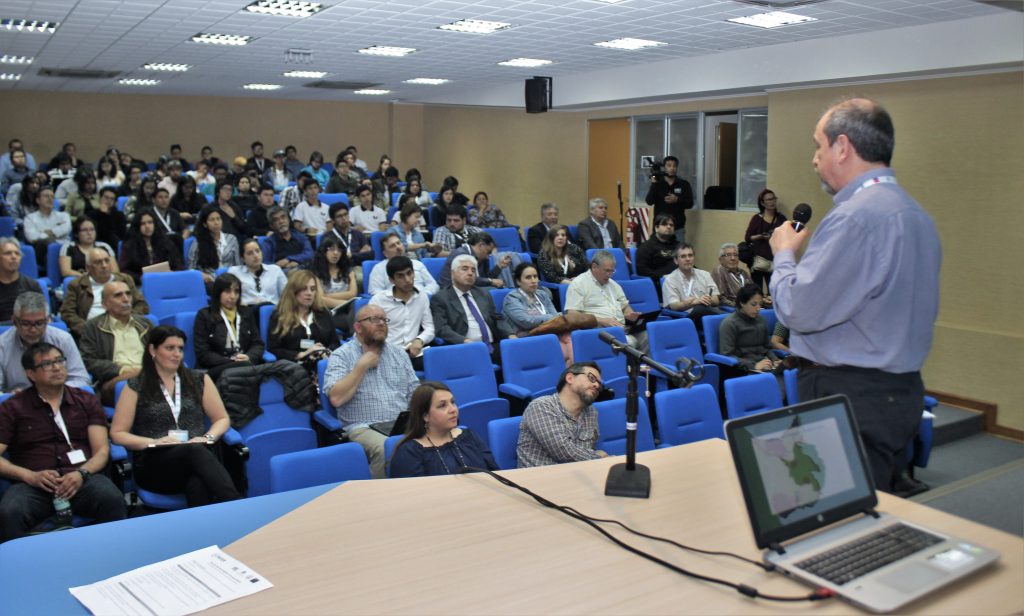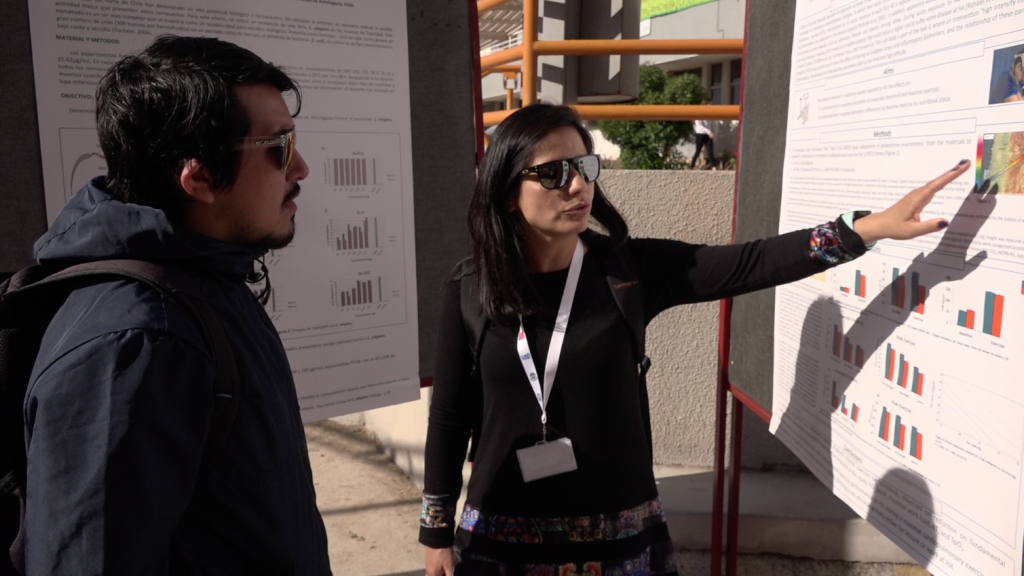NEXER research network had their anual meeting in Antofagasta


Scientists from the University of Magallanes (UMAG), University of La Frontera (UFRO) and University of Antofagasta (UA), met in the capital of the Second Region, joining in this way to the multiple scientific meetings that are carried out within the framework of cop25.
The coordinator of the NEXER Network in the UA, Dr. Cristina Dorador, explained to “Prensa UA” that many of the investigations they carry out, are oriented towards the topic of Climate Change, “especially regarding to extreme environments, because there is a background to think that they would be one of the most affected with that phenomenon ”.
NEXER’s research is oriented towards organisms that live in extreme environments present in the Atacama Desert, the southern pampas, volcanic systems, ice fields and the Antarctic depths, and together with this, generate projects, alliances and new knowledge.
“The afternoon was open to the community, precisely so that some regional authorities attended with students, because they are the ones who can transmit our message of how science contributes to the understanding of ecosystems, and so, they can take better decisions, ”explained Dr. Dorador.
CORE
The president of the Education, Science and Technology Committee of the CORE of Antofagasta, Andrea Merino, participated in the conference highlighting the importance of the Network and the very high level of the scientists who take a great part of it, she also pointed out the urgency that the politicians who manage the budget of the regions, have more scientific information when making decisions.
The authority added that the works of the scientists, although they are of a technical nature, are very relevant and can impact the entire country, not only in the areas where the universities of the Network are located. “I believe that regional governments should invest in these studies, as something concrete and of long-term benefits ”.
NETWORK
UFRO’s research director, Cesar Arriagada, says that work has been so far good, with an importante level of cooperation. “Now the challenge is to continue consolidating ourselves in terms of organization, and achieve more visibility.”
For his part, the coordinator of the Network at UMAG, Juan Carlos Aravena, tell us that the NEXER member universities are public and regional. “For us, being the most remote institution, it is very beneficial to work with our peers who are more advanced, gaining experience. We must continue to strengthen ourselves to contribute in decision-making and in the generation of public policies, ”he said.
NEXER started operating in 2017 and is funded through the Marcos Agreements signed between the three universities and the Ministry of Education. It is the only Research Network dedicated to studying extreme environments in Chile in a multidisciplinary way.
Source: UA Communications: David Pasten / http://www.comunicacionesua.cl/2019/10/17/red-nexer-de-investigacion-se-reunio-en-antofagasta
